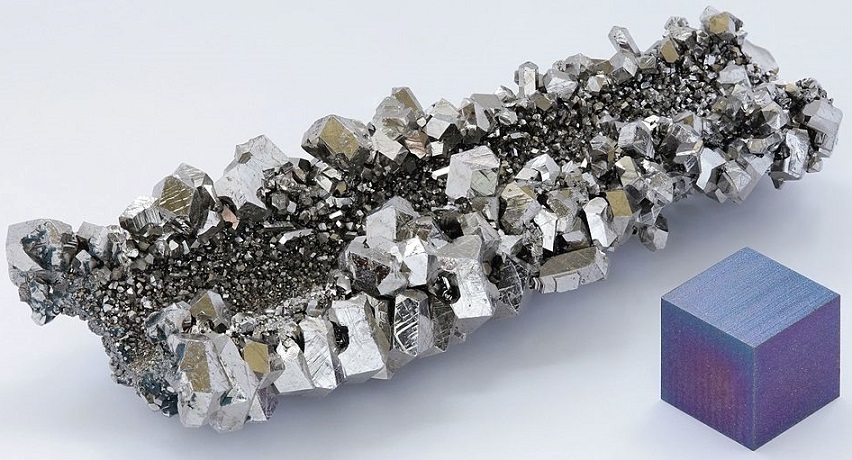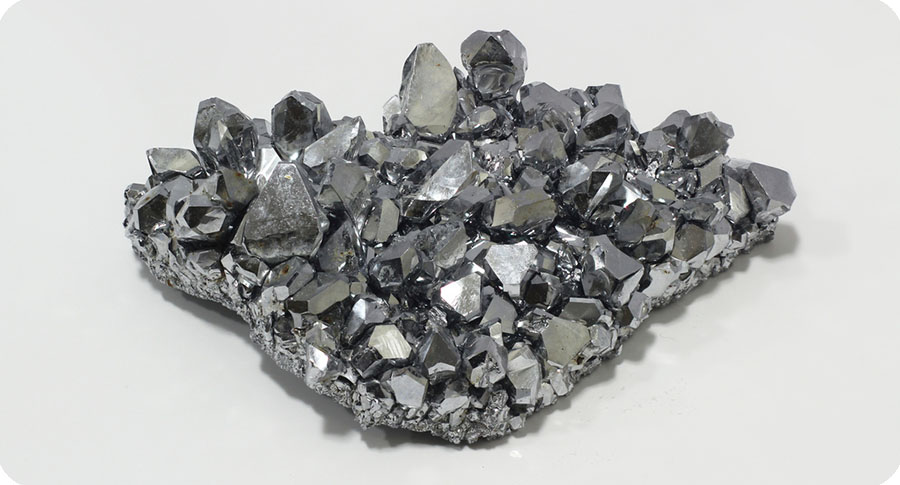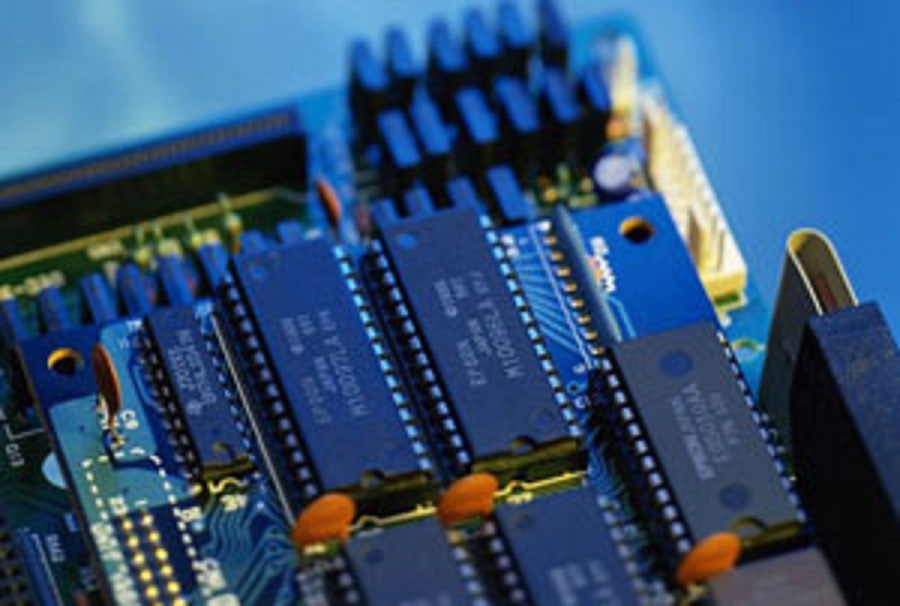10 Important Uses of Niobium

10 Important Uses of Niobium
Niobium is a rare metal with a high melting point, silvery gray color, soft texture, and good ductility. The density of niobium is 8.57g / cm³, the melting point is 2477 ° C, and the boiling point is 4744 ° C. Thanks to its good superconductivity, high melting point, corrosion resistance, and wear resistance, niobium is widely used in production and life. In this article, we will take a look at the 10 important uses of niobium.

Uses of Niobium
1. The Uses of Niobium in the Metal Industry
About 85% to 90% of the world's niobium is used in iron and steel production in the form of ferroniobium. Adding 0.03% to 0.05% of niobium in the steel can increase the yield strength of the steel by more than 30%.
Besides, niobium can also achieve the dispersion distribution of precipitates by inducing precipitation and controlling the cooling rate, and adjusting the toughness level of steel in a wide range.
Therefore, adding niobium to steel can not only improve the strength of the steel, but also improve the toughness, high-temperature oxidation resistance, and corrosion resistance of the steel, reduce the brittle transition temperature of the steel, and make the steel have good welding performance and formability.
Further reading: Application of Niobium in the Steel Industry
2. The Uses of Niobium in the Superconducting Materials Industry
Certain compounds and alloys of niobium have high superconducting transition temperatures and are therefore widely used in the manufacture of various industrial superconductors, such as superconducting generators, superconducting magnetic energy storage devices, nuclear magnetic resonance imaging equipment, and so on.
At present, the most important superconductor materials are niobium-titanium and niobium-tin, which are widely used in medical diagnostic magnetic resonance imagers and nuclear magnetic resonance instruments for spectral lines.
Further reading: Niobium-Contained Superconducting Materials and Their Applications
3. The Uses of Niobium in the Aerospace Industry
The aerospace industry is the main application area of high-purity niobium, and niobium is mainly used in the production of rockets, spacecraft engines, and heat-resistant components.

The Uses of Niobium in the Aerospace Industry
Niobium and tantalum heat-strength alloys have good heat-strength properties, heat resistance, and processing properties, and are widely used in the manufacture of aero-engine parts and gas turbine blades.
Niobium alloy is used in the thermal components of almost all jet fighter engines in the United States.
4. The Uses of Niobium in the Atomic Energy Industry
Niobium has good thermal conductivity, high melting point, good corrosion resistance, and low neutron capture cross-section. It is a very suitable material for atomic energy reactors.
The main uses of niobium in the atomic energy industry include jacket materials for nuclear fuel, alloys for nuclear fuel, and structural materials for heat exchangers in nuclear reactors.
5. The Uses of Niobium in the Electronics Industry
Niobate ceramics can be used to make capacitors, single crystals of compounds such as lithium niobate and potassium niobate. They are crystals for optoelectronics and electronics. They have good piezoelectric and optical properties and are widely used in infrared, laser technology, and electronics industries.

The Uses of Niobium in the Electronics Industry
In addition, niobium has a high melting point, a strong ability to emit electrons, and a gettering ability, which can be used to make electronic tubes and other electric vacuum devices.
6. The Uses of Niobium in the Medical Field
Niobium has good resistance to physiological corrosion and biocompatibility, will not interact with various liquid substances in the human body, and will hardly damage living organism tissues. Niobium can adapt to any sterilization method, so it is often used in the manufacture of bone plates, skull plate bone screws, dental implant roots, surgical appliances, and the like.
7. The Uses of Niobium in the Chemical Industry
In the chemical industry, niobium is a high-quality material resistant to acids and liquid metals. It can be used to make cookers, heaters, coolers, etc. In addition, niobic acid is an important catalyst.
8. The Uses of Niobium in the Foundry Industry
Niobium is also used in the foundry industry to form hard carbides (good for wear) and to change the shape and size of graphite sheets, so it is often used in the manufacture of automobile cylinder heads, piston rings, and brake pads. In addition, niobium is sometimes used with gold and silver on commemorative coins.
9. The Uses of Niobium in the Optical Industry
Niobium helps increase the light transmittance of lenses and is therefore also used in the manufacture of lenses in the optical industry.
10. The Uses of Niobium in the Lighting Industry
Niobium can also be used in the lighting industry. For example, an alloy of niobium and 1% zirconium can be used to make a precise bracket for high-efficiency and high-strength sodium vapor street lamps, so that these small parts have high thermal strength, excellent formability, and resistance to sodium vapor corrosion performance.
Conclusion
Thank you for reading our articles and we hope you've enjoyed it. If you want to know more about the uses of niobium and other refractory metals, you can visit Advanced Refractory Metals (ARM) for more information. Headquartered in Lake Forest, California, ARM is a leading manufacturer & supplier of refractory metal products such as tungsten, molybdenum, tantalum, rhenium, titanium, and zirconium.
{{item.content}}
LEVE A REPLY
{{item.children[0].content}}
{{item.content}}






